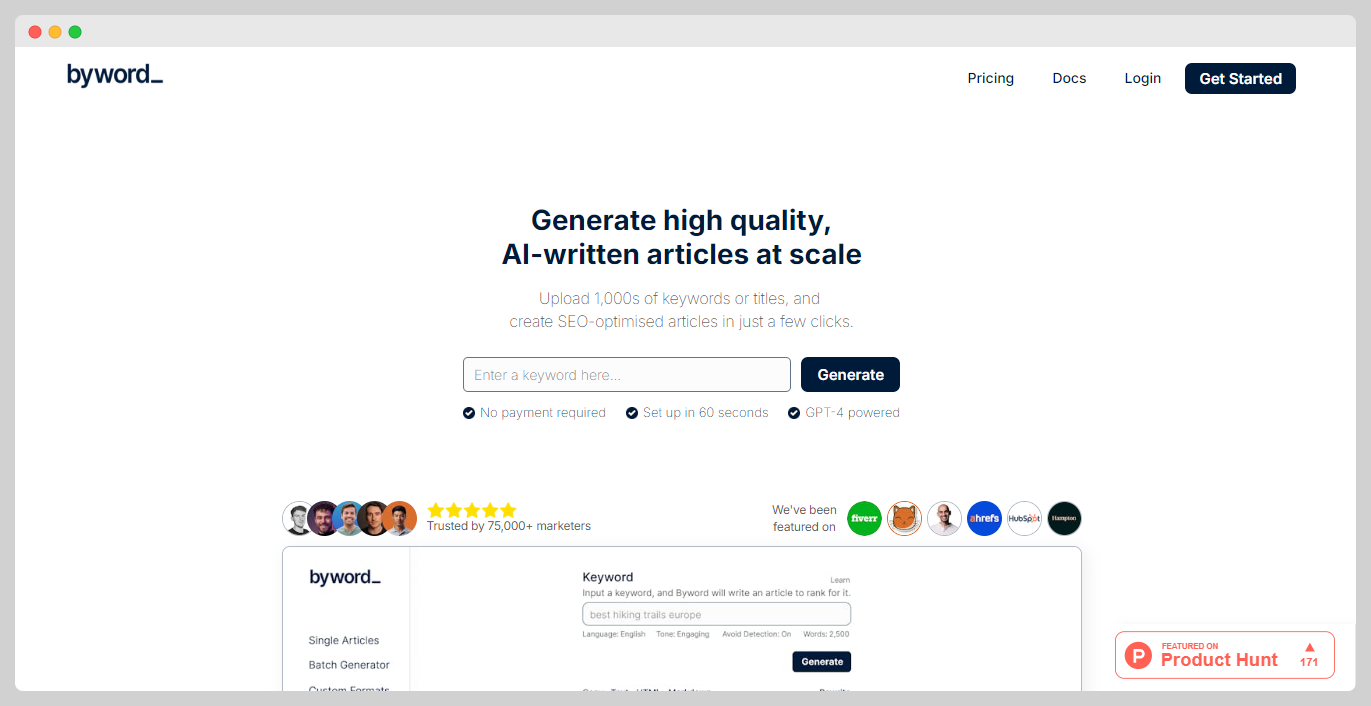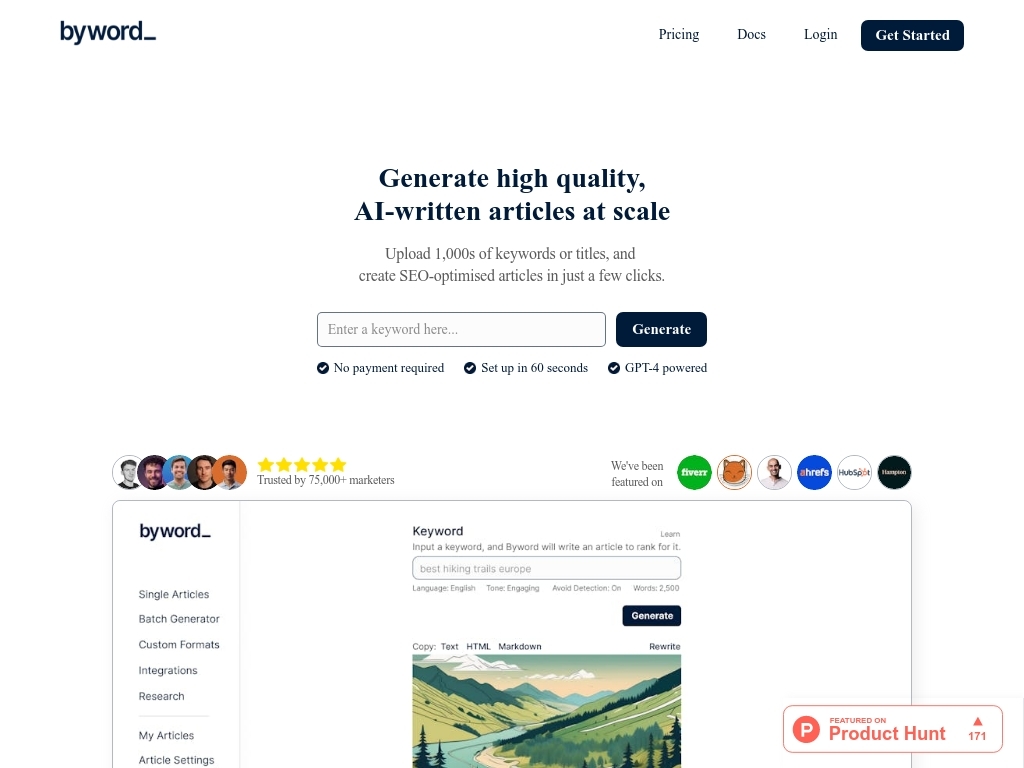How Mack Grenfell Scaled Byword to Over $1M ARR and 50,000 Users
Who is Mack Grenfell?
Mack Grenfell, founder of Byword, studied physics and philosophy at Oxford, where he began honing his coding skills during an internship at CERN. He later worked at Goldman Sachs, a performance marketing agency, and a health tech startup before going freelance and eventually launching Byword.
What problem does Byword solve?
Byword makes it incredibly easy for businesses to generate a massive amount of SEO-optimized content quickly and affordably, eliminating the tedious and expensive process of manual article creation.


Founder-Market Fit
Skills
What skills did Mack Grenfell have that led to their success?
Disclaimer: The initial draft of this article was compiled by the Starter Story team based on publicly available interviews, podcasts, and other content from the founder. See the sources we used here.

Download the report and join our email newsletter packed with business ideas and money-making opportunities, backed by real-life case studies.

Download the report and join our email newsletter packed with business ideas and money-making opportunities, backed by real-life case studies.

Download the report and join our email newsletter packed with business ideas and money-making opportunities, backed by real-life case studies.

Download the report and join our email newsletter packed with business ideas and money-making opportunities, backed by real-life case studies.

Download the report and join our email newsletter packed with business ideas and money-making opportunities, backed by real-life case studies.

Download the report and join our email newsletter packed with business ideas and money-making opportunities, backed by real-life case studies.

Download the report and join our email newsletter packed with business ideas and money-making opportunities, backed by real-life case studies.

Download the report and join our email newsletter packed with business ideas and money-making opportunities, backed by real-life case studies.
More Business Ideas Like This
- Monthly Revenue
-
$83.3K
- Profitable
-
Yes
- Founders
-
2












